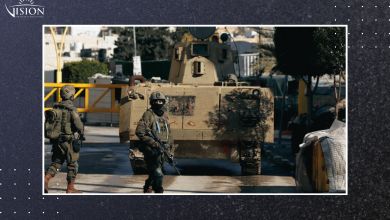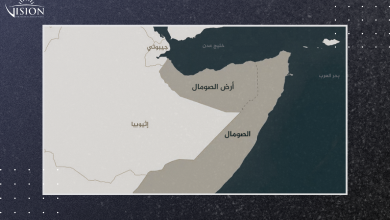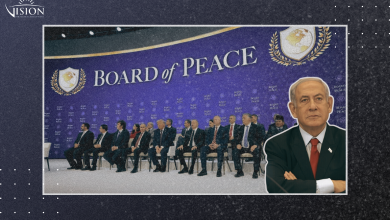Why has Israel promoted the idea of an “existential threat”?

Ahmed Atawna
Less than a year has passed since the “Al-Aqsa Flood” operation and the subsequent war on Gaza, yet the Israeli aggression has expanded to include several countries in the region, crossing all red lines in its genocidal war against the Palestinian people and their supporters. This aggression has indiscriminately targeted both military and civilian installations, as well as combatants and political leaders, the most recent being the Secretary-General of Hezbollah, Hassan Nasrallah, along with other key figures. This sends a clear message: there are no limits or red lines in its bloody war.
This occurs concurrently with the spread of Israeli propaganda, which finds resonance even among some of Israel’s adversaries, each for their own reasons. The real problem, however, lies in the fact that some elites, analysts, and political leaders reiterate this propaganda without realizing its political and media impact. In doing so, they may unintentionally bolster Israeli narratives, reinforcing the Zionist discourse that emphasizes Israel as the victim while attempting to monopolize global sympathy, portraying Palestinians and Muslims as savage aggressors threatening the Jews and their state.
The Occupation Will Inevitably End… But
There is no disagreement among those who believe in the justice of the Palestinian cause that the occupation is destined to end, and that it will not be an exception in history. This is a principle that has held true in all nations across the world. With the exception of the new world territories, where indigenous populations were nearly wiped out, such as in the United States, no people on Earth remain under permanent occupation.
Moreover, this occupation lacks any legitimate claim to the land it occupies; it does not belong to the region, nor does it share any cultural, intellectual, or national ties to it. Its population is a blend of various ethnicities, cultures, and nationalities. Furthermore, the Palestinian people’s steadfast refusal to accept the occupation and their persistent resistance, combined with the special status of Palestine in the hearts of the Arab and Muslim nations, ensures that there is no future for the occupation on Palestinian land.
Since its inception, the occupation’s brutal actions have fueled hatred, not only from the Palestinian people but also from the entire Arab and Muslim world. Today, this animosity has intensified due to the genocidal war waging in Gaza, sparking anger among many nations, including those in the West, which have long supported Israel.
This does not mean, however, that we should overlook Israel’s objectives in constantly discussing the “existential threat” it faces. While it may appear as a reflection of Israel’s deep sense of crisis and perpetual fear for its future, it also serves the following purposes:
- Perpetuating the Narrative of Victimhood and Oppression: Through its discourse on the existential threat, the Zionist entity seeks to monopolize the image of the oppressed, linking this to what it calls the “Jewish people” and the persecution they faced in Nazi Germany. It even recalls other historical episodes of Jewish persecution, such as under Tsarist Russia and in Spain, emphasizing that Israel is the only safe haven for Jews that must be protected at all costs. It demands the world’s support in this regard, particularly from those it accuses of contributing to Jewish persecution or those who believe in the notion of redemption.
- Justifying Brutality and Crimes: Israel and its military exploit the propaganda of existential threat and victimhood to justify the brutality they practice and the crimes they have committed—and continue to commit—the latest being the genocide in Gaza. They attempt to convey the impression that all these actions are necessary due to an imminent existential threat, portraying those they kill, destroy, and obliterate as a danger to their survival. Thus, everything Israel does is justified as an act of self-defense.
- The Zero-Sum Conflict: “Existence or Annihilation”: Israel, particularly its current fascist government, adopts a policy of no compromise with the Palestinians, asserting that the only option is to eliminate the physical presence of Palestinians on Palestinian land.
The current government believes that the time has come to “settle the conflict” and complete what was left unfinished in 1948 by either expelling or subjugating the remaining Palestinians within the borders of historic Palestine. The narrative they promote is that this geography—Palestine—can only accommodate the national ambitions of one people, which, in their view, is the “Jewish people.”
Thus, it becomes necessary to drive the Palestinians to despair over the possibility of achieving their national aspirations in Palestine. This is being pursued through intensified acts of violence, killings, and destruction, culminating in genocide. The specter of the “existential threat” is also invoked to cover these atrocities.
4. Garnering Support:
Since its establishment, the leaders of the Zionist entity have understood that the region would never accept their presence, and that the Palestinian people would not succumb to plans of displacement or subjugation. They would continue to resist until they secure their rights. Consequently, the environment surrounding this entity remains inherently hostile, denying it security or stability. Despite the official normalization of relations with several Arab states, this has not altered the perception of the peoples in the region. These populations continue to reject the entity’s existence, considering it a threat to their future—a sentiment expressed at every available opportunity.
This reality means that the Zionist entity, despite its possession of nuclear weapons, relies heavily on constant external sponsorship and support. This dependency stems from its inherent weakness, and is especially tied to the nations that created and nurtured it as a functional project for their own interests. These nations employ a host of false narratives and justifications to maintain their support, framing the entity as the sole “safe haven” for Jews. Consequently, its protection and preservation are not only of significant strategic importance but also presented as a moral obligation. Hence, we see these states competing to express their unwavering support for this threatened entity, while it continues to portray itself as the victim and evoke the existential threat narrative.
5. Strengthening Internal Solidarity:
Israeli governments employ a strategy of fear-mongering and a perpetual phobia of the future to strengthen internal cohesion within Israeli society. This is achieved through instilling a constant sense of shared destiny, continuously fueling fear of the future and the existential threat facing them. The goal is to ensure the maintenance of this internal solidarity, particularly in support of the government’s aggressive policies.
This strategy gains even greater significance in a fractured society characterized by significant ethnic and national diversity, lacking shared historical, cultural, or civilizational foundations. Aside from its fabricated historical myths, what unites its members—besides the fear that has haunted them from the past and continues to inhabit them today—is little more than the common fear of their uncertain future.
This is supported by the undeniable fact that the so-called national belonging to the geographical region they inhabit is largely artificial. This is evidenced by the phenomenon of reverse migration whenever a crisis or war arises, and the widespread reluctance among Jews to migrate to occupied Palestine, even after all these years since the establishment of “Israel.” In fact, the number of Jews residing in the United States alone equals that of those living in occupied Palestine.
When the allure of the “land of milk and honey” and the promise of a prosperous life fades due to ongoing wars and persistent challenges, the existential threat narrative is once again amplified to ensure the continuation of internal unity and solidarity.
The Existential Threat: Who Threatens Whom?
A careful examination of both the international and regional landscapes, along with the specific circumstances surrounding the Israeli occupation and its adversaries, reveals a reality starkly different from what the occupation seeks to promote. It negates the notion of an existential threat to Israel—at least at this stage—and affirms that the occupation’s claims fall within the realm of propaganda and political deception for several reasons:
- Relative Stability in the International Arena: The current international balance of power still tilts in favor of the Israeli occupation, particularly in its confrontation with resistance forces. There is virtually no significant international power that seriously opposes, let alone actively counters, the occupation’s criminal policies against the Palestinians. Countries that might be expected to create a balance in the international scene—particularly Russia and China—remain hesitant or choose to distance themselves from the ongoing conflict. In fact, some of these powers even offer support to Israel, albeit indirectly.
- Unconditional Western Support: The Western, especially American, full and unconditional support for Israel remains unwavering. This backing is provided regardless of political differences that might arise with the Israeli government. This support is not limited to extensive military aid and the continuous commitment to defend and protect Israel. It goes beyond that to include political assistance, helping Israel achieve its objectives in the wars it engages in. This support compensates for what Israel cannot accomplish militarily through political achievements that the United States seeks to impose on various regional actors.
- The Ongoing Colonial Function: The Israeli entity continues to serve the colonial purpose for which it was originally established. The colonial powers that founded Israel, determined the geographical location for its establishment, and ensured its survival to this day, did so to serve their colonial and imperial visions in the region. These powers continue to act as colonial actors, and they still view the Arab and Islamic worlds through the same lens. They perceive Israel as a crucial colonial tool for their strategic interests in the region. Therefore, preserving, supporting, and protecting Israel is considered a necessity and remains a point of consensus among these powers. As the current U.S. president, Joe Biden, stated, if Israel did not exist, it would have had to be invented.
- Weakness of the Official Arab and Islamic Position: The general weakness of the official Arab and Islamic stance, with variations in the positions of different countries toward Israel and its aggressive policies, remains evident. With the exception of Iran and some non-state actors and movements, most Arab and Islamic states have long adopted a passive position regarding the conflict with Israel. They have distanced themselves from direct involvement and maintained political stances that have little effect on the course of the conflict. This weakness is further exacerbated by the rapid acceleration of official normalization with Israel, particularly among Arab states, and the collapse of several key Arab countries, which have become entangled in internal wars that have fragmented their geography and populations.
- Israel’s Military Superiority: Israel maintains a significant qualitative military edge, possessing the latest Western-manufactured weapons, particularly from the United States, in addition to a vast nuclear arsenal, the true size of which remains unknown. Western countries have not only provided protection to Israel but have also equipped it with all the necessary military power and tools. France, for example, built Israel’s nuclear reactor, enabling it to produce an undisclosed number of nuclear bombs. The United States and other Western nations have continued to supply Israel with the latest aircraft, missiles, and military equipment, as well as unlimited security and intelligence support.
Reframing the Narrative:
Given these realities, Palestinians and their supporters must not be misled by Israeli propaganda concerning an existential threat. It is essential to set matters in their proper context: it is the Palestinian people who are under existential threat, as they are the oppressed victims of both historical and modern colonialism. Their presence on their own land faces a real and tangible danger. More than half of the Palestinian population has already been displaced, while the remaining half continues to be under the threat of further displacement—this is the true existential threat—especially in light of the explicit and repeated threats from the Israeli government’s fascist regime.
It is time to reverse, or more precisely, to correct the narrative to reflect the truth. The discourse must be clear and explicit: it is the Palestinian people who face an existential threat, as their very existence on their land has been targeted for over a century. The Zionist occupation represents the real existential threat, not only to Palestinians but also to many other peoples and states across the region.





